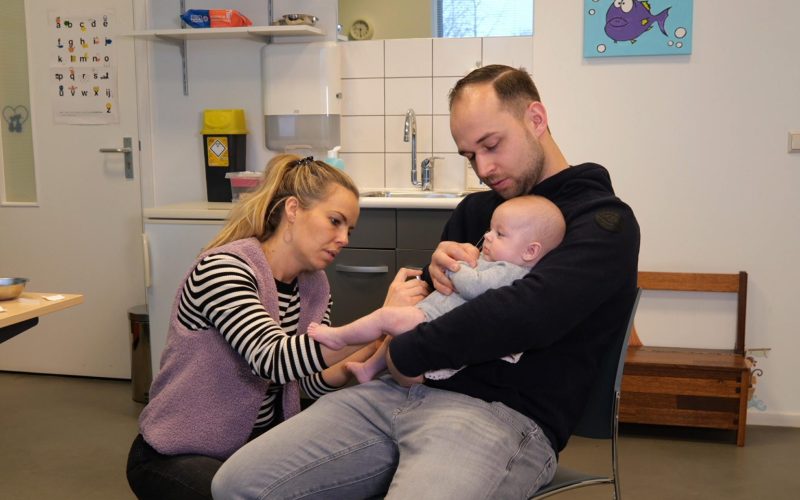UMC Utrecht and The Wilhelmina Children’s Hospital think it is good news for babies and their parents that the Health Council recommends including a vaccination against the RS virus for infants in the National Vaccination Programme. This vaccination protects infants against the RS virus during their first vulnerable months, and it also provides broad societal benefits. The number of hospital admissions due to the RS virus can fall by 80 per cent, scientific research shows.
The Health Council issues this advice to the Ministry of Health, Welfare and Sport, and the secretary of state decides whether to follow the advice. The UMC Utrecht is calling for the vaccine to be included in the National Vaccination Programme as soon as possible, as the RS virus is a common and highly contagious seasonal virus. ‘Vaccination can help prevent babies from contracting a life-threatening infection next autumn. For young children and their parents, we would of course prefer to avoid a drastic ICU admission,’ says Louis Bont, paediatrician-infectiologist at the Wilhelmina Children’s Hospital in Utrecht.
The infant vaccine contains an antibody that targets a protein on the surface of the RS virus. This prevents the virus from entering airway cells. The infant vaccine can be administered shortly after birth or in autumn through a single shot. It provides protection for about six months, giving babies good protection against the RS virus during their first vulnerable months. Even after the first year of life, the virus can still cause illness, but infections in those children tend to be milder. In the United States and some European countries, including Spain and Belgium, the vaccine is already offered to babies. The vaccine is not currently available in the Netherlands.
The RS virus can cause severe respiratory infections, especially among young children and older adults. Every year, there is a spike in the number of RS virus infections during the winter months. Symptoms include nasal cold symptoms, coughing, and sometimes wheezing.
Globally, RS virus is the second leading cause of death in infants, after malaria. Although deaths from the virus are rare in the Netherlands, 150 to 200 babies end up in intensive care here too every year. Among healthy infants, 1 in 56 is hospitalised due to infection.
